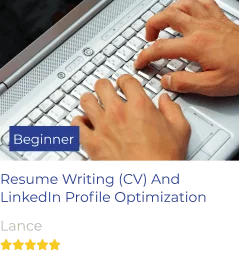As soon as you get a sense the hiring manager wants you to come back for a second interview, make sure to do your homework. Remember, this is a two-way street, and you need to know if working with the interviewer’s team is a good fit for you just as much as they need to know if you’re the one they want on board.
You should also be aware that a second interview is a lot more casual than the first, so don’t bring your best suit or blazer, thinking you’ll need to dress up again. The exception would be if the first round were held at the office, but this typically means it’s likely going to be a laid-back conversation over a cup of coffee.
You should also try to find out as much as you can about what might be asked during the second interview. If it’s a phone conversation, ask your contact person to let you know the number of people on the call and something about them, so you have a better idea of their role in the company.

What to ask the hiring manager in a second interview
It only takes a few minutes to prepare questions for the hiring manager, but it can give you big payoffs, such as an offer letter.
You’ve gotten through the phone and in-person interviews, and now you’re scheduled for a second interview with the hiring manager. That’s great progress! Here are some tips for interviewing with this hiring manager.
1. Ask about the decision-making process.
Who does this person report to, and who else is involved in the decision? How much weight will each person’s opinion have? Do they have a formal system for making a choice, or is it more casual?
2. Ask what you should do if you get an offer from another company.
Will she give you time to think it over? Will he want an immediate response? Does your prospective manager expect you to take other interviews if necessary before accepting the job? Will this affect your candidacy at all? How long can you wait before giving them a final answer, assuming nothing changes in their process between now and then (which could be as short as a few hours.)
3. Ask what you can expect in your first weeks on the job.
What will your responsibilities be? What kinds of training or help will you receive? What kinds of opportunities might come up for professional development, and how would that process work? How soon could you deliver tangible results, and how regularly will it happen after that?
4. Ask who is involved in the hiring decisions.
If you’re interviewing multiple people out of one office, ask who else is likely to be involved in hiring decisions (e.g., other managers down the hall, HR staff). If there are other interviews scheduled, ask about the order in which they’ll take place (e.g., “I’ve got an interview set up with Jane next week; do I need to worry about what she asks me?”)
5. Ask about career growth.
Ask these questions of every person you interview with, if possible. Some companies have a training program that all new hires go through together; it’s helpful to know that going in so you can ask the hiring managers how it would affect your position from day one.
6. Ask what happens after you start working for this company.
Is there anything else we should talk about? If this is the face-to-face portion of the interview wrapping up, the chances are good; that’s where they’re going next. Some hiring managers will want to leave with a handshake, and others will want you to discuss payment, benefits, etc., but either way, it’s good to go into that conversation knowing how it should proceed.
7. Follow up—always—even if you don’t get an answer right away (or ever.)
“Thanks again for meeting with me today; I really appreciate your time and look forward to hearing from you,” followed by silence, is not a great outcome (for you or the company), but “I hope we can connect soon about [specific question],” is fine. You may never hear back from them at all, but it’s better than silence!
8. Ask what you could improve.
If you’re using a third-party recruiter, ask for feedback on what you’re doing right and what you could improve. Whether it’s your resume, the way you answer questions, or any other part of the process, there is always room for improvement.

9. Ask about the experience they are looking for.
If they say no to this question (or don’t answer), ask if your lack of experience in certain areas would be a problem. This isn’t about getting training during their onboarding program; it’s about whether the hiring manager thinks that without that experience, you’ll have some significant gaps in knowledge once you start working for them.
10. Ask how long it will take to get an answer after your face-to-face interview.
This is an advanced scheduling question in that the expected answer will be something along the lines of “within two weeks.” They may then schedule a phone call for this purpose or give you a range (e.g. “We should have an answer for you by Friday.”)
11. Ask what happens if their team decides they need to interview more candidates.
If it’s truly exclusive when they raise their hand, ask them when they might come back to re-interview candidates who didn’t get an offer.
12. Ask about their concerns.
If possible, meet with your hiring manager one-on-one, which gives you a chance to specifically address any concerns about your ability to do the job that person has. This is less about the hiring manager’s concerns than it is about finding out what they are because if you know what they are then, you can come up with counter-arguments that show them their fears aren’t based in reality (and thus shouldn’t keep them from hiring you.)
13. Ask about the salary.
Asking this question shows your interest in (and commitment to) working for the company, which goes a long way toward getting an offer. Use phrasing like “I’d like to work here” or “I’m excited about the possibility of joining your team.” That said, never lie in an interview; if asked how much salary you’re looking for and you name a figure without knowing what they’re offering, that’s a big red flag. Be sure you know the range before you go in for an interview, so you don’t mess up when it comes time to answer.
14. Ask about your roles.
This is another way of asking, “What would I be doing if we weren’t discussing the specifics of my role,” and a good opportunity to see what you’ll be expected to do once hired. It’s also a potential lead-in to questions about training or educational opportunities/certifications that could help your career at that company (if relevant.)
You may be wondering what to do if you have some lingering questions after your second interview. Keep in mind that the hiring manager likely has a lot of other interviews and tasks they need to tend to, so this is not always possible for them. That’s why it can help if you come prepared with any last-minute questions before your interview.
If there are any topics or aspects of the company culture that were unclear from reading their website, ask about those during the conversation. This way, when you get asked, “Do we still want to hire you?” in the end, your answer will always be yes!





